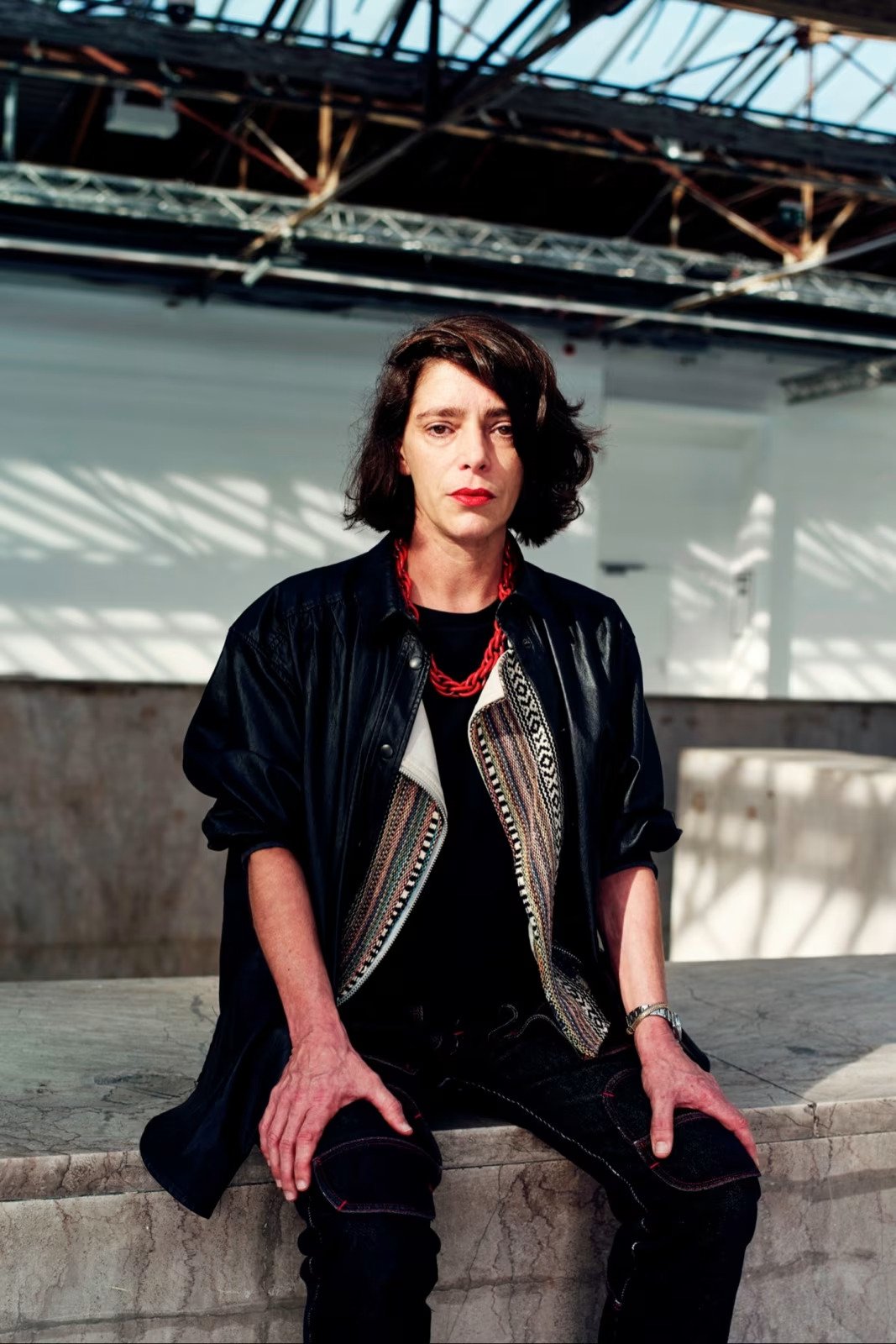Artist Lili Reynaud-Dewar: ‘I think we attribute too much power to art’
Lili Reynaud-Dewar photographed for the FT at the Palais de Tokyo by Edouard Jacquinet
Lili Reynaud-Dewar had to go to Scotland to learn about France. The artist, born in La Rochelle on the western coast of France in 1975, moved to the UK to study for a masters in fine art at the Glasgow School of Art in 2001. “I didn’t realise until then how male-dominated the French contemporary art word was. There were artists that I admired very much, but there was very little place for women,” she says.
It was in Glasgow that Reynaud-Dewar also had her first brush with performance, dance and writing, particularly art criticism, now mainstays of her practice, as a reporter for the French contemporary art magazine Zérodeux 02. “At the time, Glasgow was a city with a lot of artists, some major institutions, but few galleries,” she recalls with a grin. “It was an art scene where artists ran the show.”
As a young woman, Reynaud-Dewar admits to having “resisted” the artistic inclinations of her family (“My father was a poet and my mother worked in the theatre”). She enrolled as a law and public administration major at the University of La Rochelle but chose to live in Paris, where art was hardly avoidable. Following a masters in public law at the Sorbonne in 1998, she turned her studies to art. After a few years taking courses at the academies of fine arts in Marseille and Nantes, she graduated from Glasgow in 2003.
In 2005, Reynaud-Dewar filmed herself dancing in her studio. This was the first of a series of videos in which the artist paints her nude body and dances through exhibition spaces. “I was interested in the choreography of Josephine Baker and wanted to interpret her movements.” The earliest videos were in black and white, as if the artist were a dancing silhouette.
A still from part 1, episode 2, of ‘Gruppo Petrolio’ © Gruppo Petrolio




